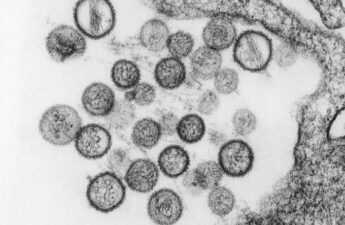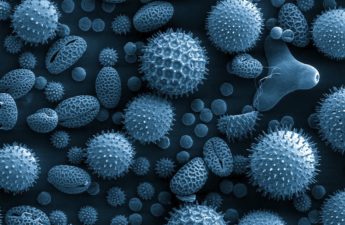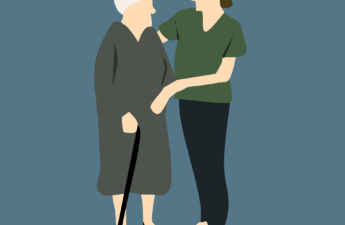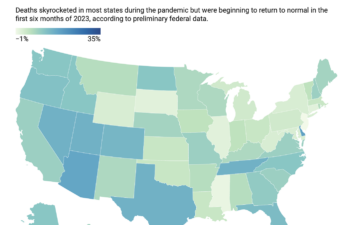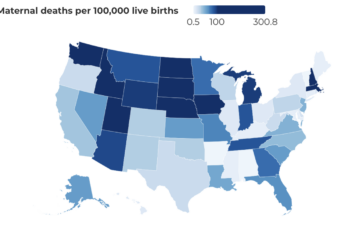There is no evidence that covid vaccines have killed Americans in large numbers, let alone 676,000. We rate the claim Pants on Fire!
Biden Administration Proposes New Standards to Boost Nursing Home Staffing
The nation’s most thinly staffed nursing homes would be required to hire more workers under new rules proposed on Friday by the Biden administration, the greatest change to federal nursing home regulations.
Hantavirus Case Reported in King County
Hantavirus can cause a rare but deadly disease called Hantavirus Pulmonary Syndrome (HPS). In Washington state, hantavirus is spread by deer mice.
There’s no age limit for politicians − as people live longer, should that change?
Joe Biden, Mitch McConnell and Diane Feinstein are all over 80 years old, joining a number of politicians who are staying in office well past their 70s.
Virtual Clinics Embrace Allergy Drops as an Alternative to Shots
An under-the-tongue treatment is popular in Europe, Canada, and Latin America. Why don’t U.S. allergists offer it?
Thousands of People Moved to the Rural South During the First Year of the Pandemic. Where Did They Come From?
Out of all the people who moved from larger cities to rural areas in 2021, two-thirds wound up living in the rural South.
Book Review: Two Critiques of America’s Ailing Health Care System
Two recent books explore a truth that is obvious to nearly everyone who works in health care and surprising to almost everyone else: Through no fault of their own, doctors often don’t know what they are doing and, even when they do, America’s patchwork way of paying for health care may prevent them from doing it.
Our vagus nerves help us rest, digest and restore. Can you really reset them to feel better?
On social media and in wellbeing circles, people have been talking about the vagus nerve a lot. In fact, we have two vagus nerves – a left and a right – and their optimal functioning is essential for good physical and mental health.
Many social media posts describe ways to reset the vagus nerves to reduce stress and increase calm. These mostly focus on yoga, meditation, deep breathing and cold plunges.
But the vagus nerves also play a part in why socialising, sex and sports are good for our health and wellbeing.
Aging with a healthy brain: How lifestyle changes could help prevent up to 40% of dementia cases
By adopting positive lifestyle habits, we could theoretically prevent about 40 per cent of dementias. While there is no guarantee of warding off cognitive decline, people can greatly reduce their risk of dementia by increasing their physical activity levels, ensuring they are mentally active and increasing social contact, while avoiding smoking and limiting alcohol consumption.
Death counts remain high in some states even as COVID fatalities wane
Fatalities from other causes such as traffic accidents, murders and overdoses are still on the rise.
TIPS FOR CLEAN AIR INDOORS ON SMOKY DAYS: A PUBLIC HEALTH COMIC
Comic by Meredith Li-Vollmer from Public Health — Seattle & King County
Risk of death related to pregnancy and childbirth more than doubled between 1999 and 2019 in the US, UW study finds
Most maternal deaths are considered preventable because, in the U.S., maternal deaths are most often caused by problems that have very effective treatments, including bleeding after delivery, heart disease, high blood pressure, blood clots and infections.
The orgasm gap and why women climax less than men
In one study of more than 50,000 people, 95% of heterosexual men said they usually or always orgasm when sexually intimate, while only 65% of heterosexual women said the same.
How to create your online Medicare account
It takes just a few minutes to create your account.
Act expands access to opioid use disorder treatment
Previously, providers were required to complete training and apply for a waiver from the Drug Enforcement Administration (DEA) to prescribe buprenorphine. Now, those with a current DEA registration that includes Schedule III authority can prescribe it.


